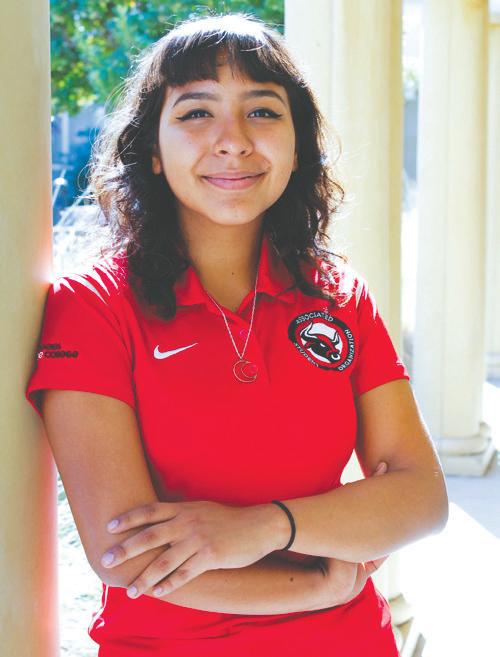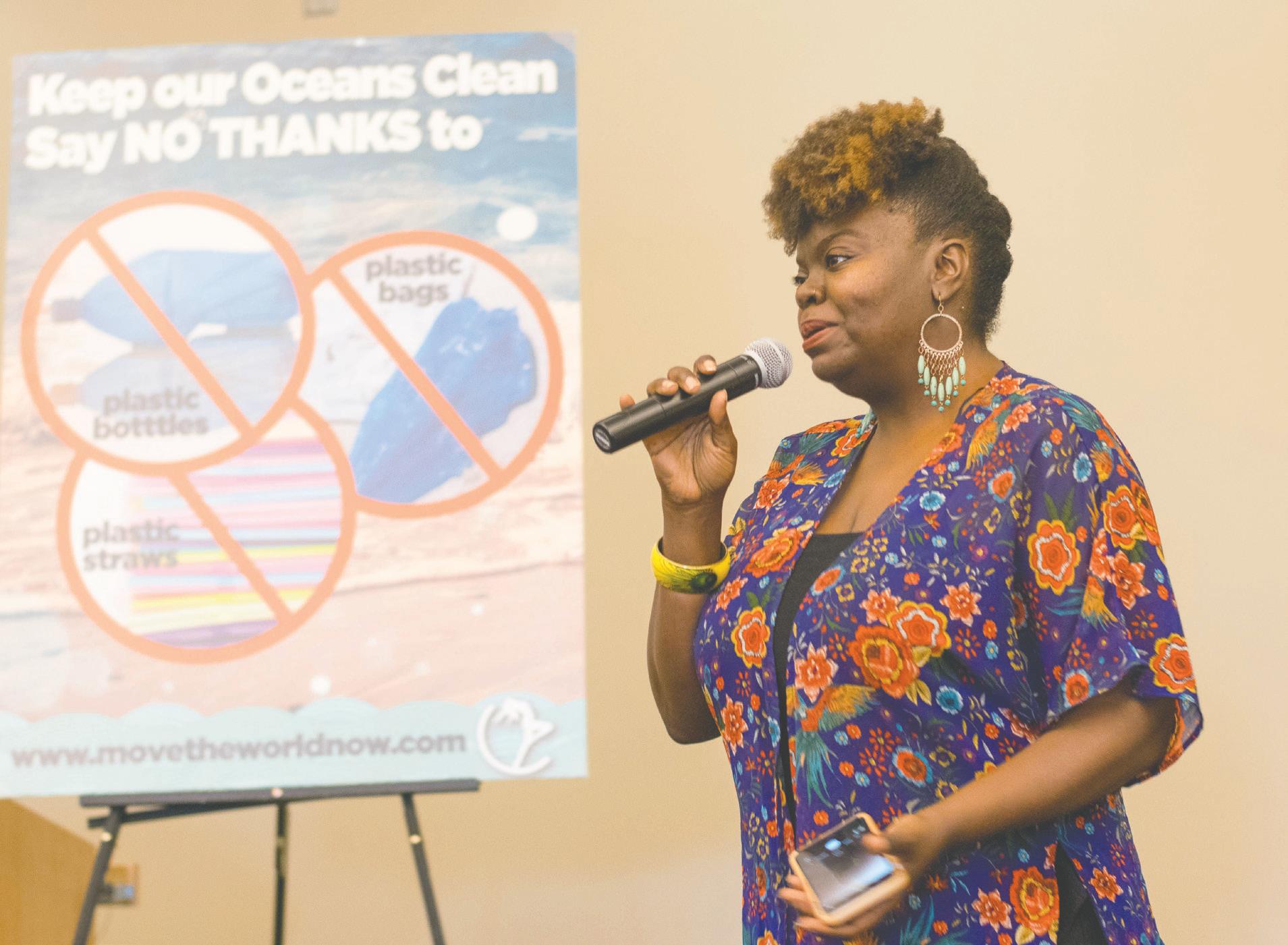
4 minute read
Profs challenge chancellor
English Department advocates for remedial classes
MANNY LUISSI Reporter TAYLOR THIBODAUX Reporter
Advertisement
The English Department issued a statement stating that students shouldn’t be required to take a class to which they’re not prepared. The proposal stems from enough students failing to meet course standards.
In the Academic Senate meeting, English instructor Charles Sheldon said that for a student to take English 101, it is required that they test into the course directly or take the prerequisites they place into, which are ESL, English 21 and English 28.
A letter presented by Sheldon on behalf of the English Department asked about a push for modifying existing English assessment tools without removing remedial courses.
Razon said they wanted to help others for Thanksgiving, so they decided to take action locally before the holidays.
“Originally, we were going to donate to a charity or a local church,” Razon said. “I thought it was a great idea to work with a club and donate to something like St.A.S.H.”
After doing research for the project, Razon said learning about the statistics was an eye opener.
“Loy said about 17 percent of college students just within the United States are homeless, or don’t have a roof over their head, which gives them less access to food, which is a reason why we decided on this,” Razon said.
Volunteer Maria Collazo was encouraging students to donate at the booth and said they received many donations. She said they were able to raise $45 that day.
“We weren’t even aware that there were cases that students were coming to school hungry. It’s good to know that they have a food pantry, and we are able to help at least before Thanksgiving,” Collazo said. “It’s nice helping students as a student.”
Loy said these issues need to be addressed among college students.
“We need to solve food insecurity and hunger, especially among college students,” Loy said.
“But also, we wanted to collaborate with a club that’s already doing so.” vegan food from the restaurant, “Follow your heart,” and goodie bags with vegan snacks and coupons.
“Our experience as English composition instructors, however, suggests that students will not succeed without developmental instruction of prerequisite skills for English 101 or higher courses,” the letter states.
“They don't really understand what it is, and I think the first step toward becoming vegan is understanding what the point is and why we’re doing it,” Ashkenazi said. “A lot of people might be interested in going vegan if they knew what it’s all about and what the reasoning is.”
One of the speakers was Paige Parson- Roache “Vegan Rama Mama,” who brought up issues about recycling and encourage students to eat healthier.

The Vegan Society does outreach and advocates a vegan lifestyle on campus, Ashkenazi said.

“We invite people to have a conversation with us so they can make knowledgeable decisions about whether they want to become vegan or not, and whether they are interested in helping dissolving animal mistreatment,” Ashkenazi said. “We’ve invited guest speakers who are social media influencers in the vegan community to talk about something they are passionate about.”
Ashkenazi’s said she is vegan because she would like to leave
Earth knowing that she has caused the least amount of harm to the world.
“I see a lot of harm being done to animals in the farm industry, and the truth is, at this point in time, there’s no way to eat animal products without causing harm to the animals,” Ashkenazi said.
Vegan Chef Josue Solis worked in the national health industry for over a decade and was giving students advice on eating healthier, drinking enough water and being more active.
Matt Phelps, who has been vegan for four years, said he can’t morally justify eating animals.
“This is an issue that affects everyone. This affects the environment, this affects the nutrition, the food that we eat, it directly affects the animals,” Phelps said. “There are so many injustices that are attached to this industry of eating meat.”
Speaker from vegan outreach Gwenna Hunter spoke to the audience about love, compassion and spirituality of veganism.
Vegan Society Advisor Stephanie Winnard said being vegan is one action that can make a huge difference.
“Being vegan can solve a multitude of extremely serious urgent problems that we are faced with, including climate change and animal cruelty,” Winnard said. “By going vegan, we can make a more peaceful world for all.”
Vegan Day brings awareness and hopefully inspires people to take action with their lifestyle, Winnard said.
“The vegan movement is exploding, it’s growing exponentially, and the demographic that’s exploding the most is college students,” Winnard said. “The young people are leading the way with this movement, this gives me hope.” sambravo.roundupnews@gmail.com cajuarez.roundupnews@gmail.com
In the letter, it mentioned that LACCD Chancellor Francisco Rodriguez cited a lack of equity in the progress of disadvantaged or underrepresent community college students which is the reason the district wants to eliminate remedial classes.
The letter describes potential reasons that these students are unable to successfully pass a college level English course.
“Acceleration of student progress does not address and cannot compensate for the many underlying factors behind the lack of college readiness,” the letter states.
According to the letter, these factors include: inadequate secondary instruction in English, unrealistic and often unattainable expectations of student work/ family/college life balance; insufficient, ineffective, or inappropriate use of financial aid for essential course materials and the additional stress, anxiety due to uncertain immigration status, family, mental health and other personal crises.
Representing the English department Sheldon asked the Academic Senate if it could retain existing pre-collegiate English courses, revise currently used measures, verify GPAs for high school graduates and non graduates, facilitate extracurricular resources, and reduce course size limits to meet current needs.
Senate Treasurer Angela Belden said that she supports the English Department and the content of the letter.
“They are seeing students underprepared, which is a bad idea,” Belden said. “It’s not a good idea to have students underprepared.”
However, Belden also sympathizes with students that have to go through a prolonged process to take college level courses after high school.









